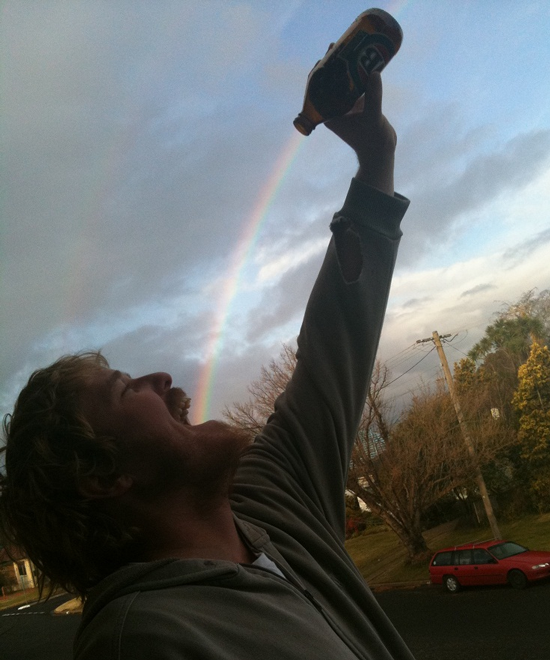As a song writer, he is best known as the author or co-author of "Where Have All the Flowers Gone?", "If I Had a Hammer (The Hammer Song)", (composed with Lee Hays of The Weavers), and "Turn, Turn, Turn!", which have been recorded by many artists both in and outside the folk revival movement and are still sung throughout the world. "Flowers" was a hit recording for The Kingston Trio (1962), Marlene Dietrich, who recorded it in English, German and French (1962), and Johnny Rivers (1965). "If I Had a Hammer" was a hit for Peter, Paul & Mary (1962) and Trini Lopez (1963), while The Byrds popularized "Turn, Turn, Turn!" in the mid-1960s, as did Judy Collins in 1964 and The Seekers. Seeger was one of the folksingers most responsible for popularizing the spiritual "We Shall Overcome" (also recorded by Joan Baez and many other singer-activists) that became the acknowledged anthem of the 1960s American Civil Rights Movement, soon after folk singer and activist Guy Carawan introduced it at the founding meeting of the Student Nonviolent Coordinating Committee (SNCC) in 1960. In the PBS "American Masters" episode Pete Seeger: The Power of Song, Seeger states it was he who changed the lyric from the traditional "We will overcome" to the more inspirational "We shall overcome".
Seeger was born in French Hospital, Midtown Manhattan,[citation needed] the youngest of three sons. He came from a distinguished, prosperous family, which he described as "enormously Christian, in the Puritan, Calvinist New England tradition." His father, Charles Louis Seeger Jr. was a violinist and composer who had studied music at Harvard. His mother, Constance de Clyver Edson, was a classical violinist and teacher, raised in Tunisia and trained at the Paris Conservatory of Music and the Juilliard School.
In 1943, Pete married Toshi-Aline Ota, whom he credits with being the support that helped make the rest of his life possible. Pete and Toshi have three children: Daniel (an accomplished photographer and filmmaker), Mika (Potter and muralist), and Tinya Seeger (Potter)�and grandchildren Tao (musician), Cassie Seeger (Artist), Kitama Cahill-Jackson (filmmaker), Moraya, Penny, and Isabelle. Tao is a folk musician in his own right, singing and playing guitar, banjo and harmonica with the Mammals. Kitama Jackson is a documentary filmmaker who was associate producer of the PBS documentary Pete Seeger: The Power of Song.
Seeger enrolled at Harvard College on a partial scholarship, but, as he became increasingly involved with radical politics and folk music, his grades suffered and he lost his scholarship. He dropped out of college in 1938. He dreamed of a career in journalism and also took courses in art. His first musical gig was leading students in folk singing at the Dalton School, where his aunt was principal. He polished his performance skills during summer stint of touring New York State with The Vagabond Puppeteers (Jerry Oberwager, 22; Mary Wallace, 22; and Harriet Holtzman, 23), a traveling puppet theater "inspired by rural education campaigns of post-revolutionary Mexico". One of their shows coincided with a strike by dairy farmers. The group reprised its act in October in New York City. An article in the October 2, 1939 Daily Worker reported on the Puppeteers' six-week tour this way:

Taste The Rainbow Graphics

Category(s): Love Quotes

TASTE THE RAINBOW

Click Here For More Quote

Taste the Rainbow

\x26#39;taste the rainbow\x26#39; quote

Jennifer � Taste the Rainbow

Taste the rainbow.

My name taste good

taste rainbow quotes; taste

taste rainbow quotes; taste

taste rainbow quotes; taste

Quote � Ignore user

Wanna taste the rainbow

pictures taste rainbow quotes. skittles quotes about rainbow. taste the

2010 taste rainbow quotes. skittles quotes about rainbow. taste the rainbow
Seeger was born in French Hospital, Midtown Manhattan,[citation needed] the youngest of three sons. He came from a distinguished, prosperous family, which he described as "enormously Christian, in the Puritan, Calvinist New England tradition." His father, Charles Louis Seeger Jr. was a violinist and composer who had studied music at Harvard. His mother, Constance de Clyver Edson, was a classical violinist and teacher, raised in Tunisia and trained at the Paris Conservatory of Music and the Juilliard School.
In 1943, Pete married Toshi-Aline Ota, whom he credits with being the support that helped make the rest of his life possible. Pete and Toshi have three children: Daniel (an accomplished photographer and filmmaker), Mika (Potter and muralist), and Tinya Seeger (Potter)�and grandchildren Tao (musician), Cassie Seeger (Artist), Kitama Cahill-Jackson (filmmaker), Moraya, Penny, and Isabelle. Tao is a folk musician in his own right, singing and playing guitar, banjo and harmonica with the Mammals. Kitama Jackson is a documentary filmmaker who was associate producer of the PBS documentary Pete Seeger: The Power of Song.
Seeger enrolled at Harvard College on a partial scholarship, but, as he became increasingly involved with radical politics and folk music, his grades suffered and he lost his scholarship. He dropped out of college in 1938. He dreamed of a career in journalism and also took courses in art. His first musical gig was leading students in folk singing at the Dalton School, where his aunt was principal. He polished his performance skills during summer stint of touring New York State with The Vagabond Puppeteers (Jerry Oberwager, 22; Mary Wallace, 22; and Harriet Holtzman, 23), a traveling puppet theater "inspired by rural education campaigns of post-revolutionary Mexico". One of their shows coincided with a strike by dairy farmers. The group reprised its act in October in New York City. An article in the October 2, 1939 Daily Worker reported on the Puppeteers' six-week tour this way:

Taste The Rainbow Graphics

Category(s): Love Quotes

TASTE THE RAINBOW

Click Here For More Quote

Taste the Rainbow

\x26#39;taste the rainbow\x26#39; quote

Jennifer � Taste the Rainbow

Taste the rainbow.

My name taste good

taste rainbow quotes; taste

taste rainbow quotes; taste

taste rainbow quotes; taste
Quote � Ignore user

Wanna taste the rainbow

pictures taste rainbow quotes. skittles quotes about rainbow. taste the

2010 taste rainbow quotes. skittles quotes about rainbow. taste the rainbow
No comments:
Post a Comment